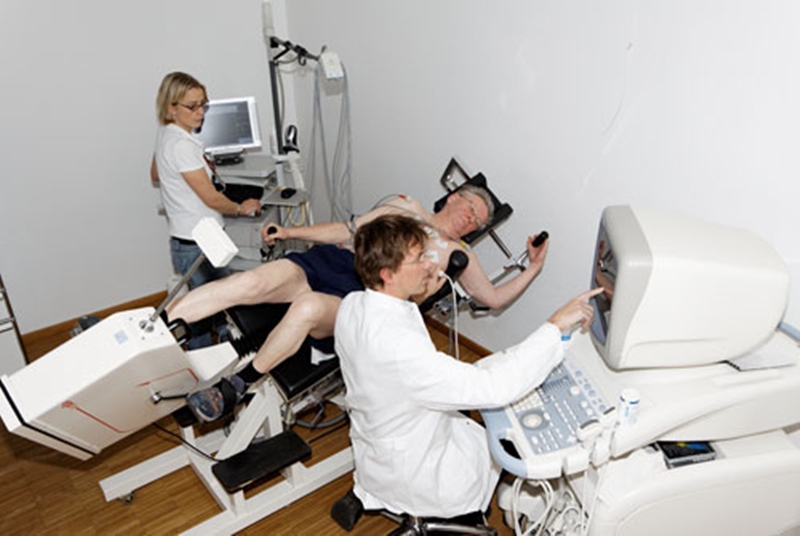Here’s the guide to finding the best test for your heart heath test, and how to get its accurate result.
Around 30% of adults in India have high blood pressure (hypertension), increasing their risk of heart attack or stroke.
A significant portion of the Indian population suffers from undiagnosed high blood pressure. This is because there are usually no symptoms.
If your doctor think you may be at risk, your blood pressure is suspected of having a heart issue, your doctor may order a test. But what’s it purpose and what should you expect?
Electrocardiogram (ECG or EKG):
Measures the electrical activity of the heartbeat to provide two kinds of information. First, by measuring time intervals on the ECG, a doctor can determine how long the electrical wave takes to pass through your heart. Finding out how long a wave takes to travel from one part of the heart to the next shows if the electrical activity is normal, slow, fast or irregular.
Second, by measuring the amount of electrical activity passing through your heart muscle, a cardiologist may be able to find out if parts of the heart are too large or overworked.
Reasons for the test:
- Monitor changes in heart rhythm
- Determine whether a heart attack has occurred
- Help predict if a heart attack is developing
2D Echocardiography (2D Echo)
The Echo is basically sonography of the heart. It’s different from abdominal ultrasound as the probe used for echo is different from ultrasound probe though the machine on which this test is done is same. The Echo will not have any side effects as it does not involve any radiation.
Reasons for the test:
- Determine damage to heart muscle
- Determine heart pumping capacity
- Determine valve related problems
- Determine any birth defects like holes in heart
Stress Echocardiogramt (Stress Test):
Also called an exercise tolerance test (ETT) is done by making you walk on treadmill and simultaneously monitor ECG graph on computer. You need to walk at gradually increasing speed and inclination for approximately 8-10 min though the duration is decided by doctor depending on various clinical parameters. It is not meant to test your exercise capacity per se but to assess how much load your heart can tolerate. If there are any blockages there will changes on ECG graph. You are not supposed to do stress test if there is any damage to heart muscle, if there are valve related problems, if heart pumping capacity is low or there is uncontrolled high BP. Hence it is mandatory that clinical examination or 2D echo should be done before stress test. Stress test carries small risk of untoward events like heart attack during or immediately after test so presence of doctor is mandatory during the test.
Reasons for the test:
- Determine the cause of chest pain, shortness of breath and weakness
- Assess the health of the heart
- Assess safety of exercise
- Identify heart rhythm changes with activity
- Find evidence of inadequate blood flow to the heart muscle during exercise
Normal stress echocardiogram with no evidence of coronary artery obstruction. Hence, the doctor may ask you for DSE test
Dobutamine Stress Echocardiogram (DSE)
A Dobutamine stress echo test is used to detect underlying blockages of the arteries of the heart and it is suitable for patients unable to run on a treadmill.
Dobutamine, a cardiac medication, is injected into a vein to stimulate the heart to beat faster and harder. Ultrasound images of your heart are taken before and during the infusion of the medication to evaluate the pumping function of the heart and detect areas with abnormal muscle contraction (indicating inadequate blood supply).
An Intravenous line (IV) will be inserted into a vein in your arm. This line will be used to deliver dobutamine medication directly into your bloodstream.
Baseline measurements (Heart rate, Blood pressure and resting ECG) will be recorded before the test is started.
IV Dobutamine will be administered at gradually increasing doses while the technician continues to obtain the echo images.
The technician will also be monitoring your heart rate, blood pressure and ECG response to the medications to decide if the test should be stopped.
IV Dobutamine infusion will be stopped and your heart rate will return to normal after 5-10 minutes.
The IV line will be removed and you will be monitored for at least 30 minutes after completing the procedure.
When your dobutamine stress echo is complete, you may return to your normal activities for the remainder of the day.

